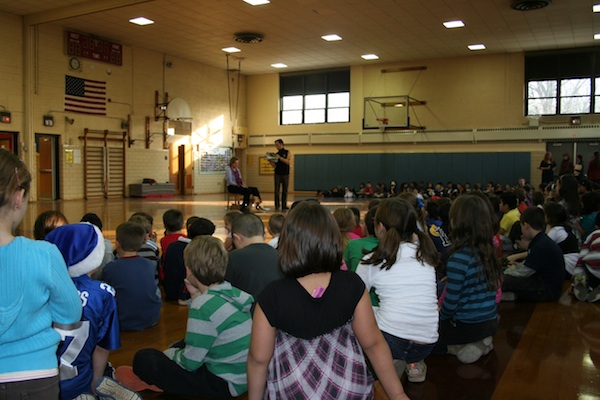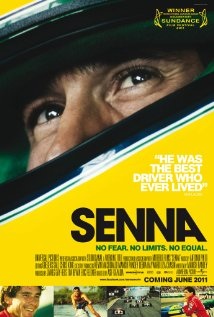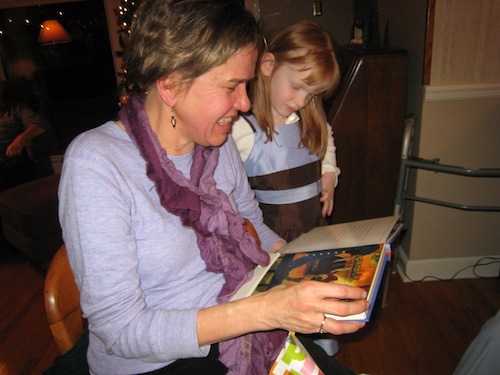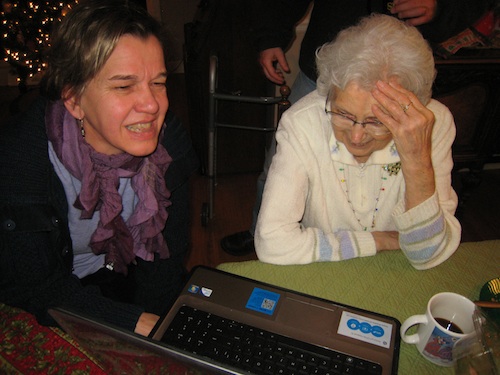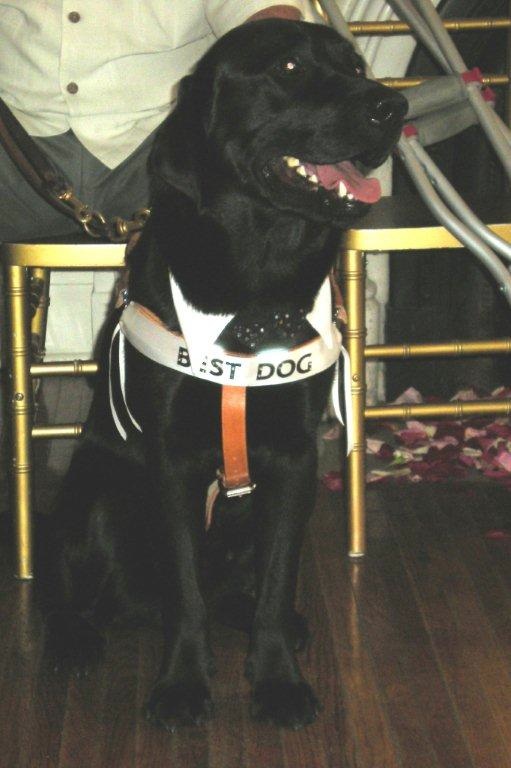Practice makes perfect
January 2, 2012 • 17 Comments • Posted in book tour, Mike Knezovich, Seeing Eye dogs, travel, Uncategorized, visiting libraries, visiting schools, Writing for ChildrenLast month I published a post about two trips I took to New York City with Whitney during our training. Here’s an excerpt:
I am happy to report that corrections don’t shake her confidence. “Oh, you meant for me to turn into Penn Station, Beth?” she seemed to say once. “Well, then, let’s back up a few steps and do it again, get it right this time.”
Those two NYC trips were part of the “freelance” period of our training: during our last week at the Seeing Eye, instructors expose us to some of the specific things they know we’ll be facing once we return home. The confidence I gained working with Whitney in NYC is coming in handy here in Chicago.
I work part-time for Easter Seals, and their headquarters is located in Willis Tower (the tower formerly known as Sears). Our route to work involves going down steps to the Blue Line El stop (we don’t take the subway, I just use the stop to go under a very busy street), and then coming up the steps on the other side before embarking on a seven-block walk of lefts and rights. Once we get near the entrance of the building, I feel for a dip up and down to indicate we’ve crossed the entrance to a parking garage, suggest left, avoid the revolving door and find the button to open the accessible door instead, and…voila! We’re there!
My husband Mike trailed us on our first trial run to Willis. The next day, Whitney and I did it on our own. Whitney was a trooper, and she handled all the city hustle-bustle with eagerness and confidence.
Whit and I headed back to Willis Tower last Wednesday. A friend met us there to help me teach Whit how to get through security, navigate the lobby, go through the turnstiles, find the elevator, head to Easter Seals reception desk, find my cubicle. We went through the route more than once, and the third time was the charm. “Good girl, Whitney! You got it!”
The next challenge: children. I visit a lot of schools with my children’s book Hanni and Beth: Safe & Sound, so while I was still training with Whitney at the Seeing Eye, Jim Kessler (one of the Senior Managers of Instruction) arranged for me to visit his daughter’s elementary school in New Jersey.
The gymnasium was empty when we arrived, and I had Whitney follow Jim to a seat. After I sat down, I commanded Whitney to do the same. “Whitney, down!” She lay down and stayed still. Until the kids marched in, that is. That’s when she started crying.
”Great,” I thought. “She’s not afraid of Penn Station, but she’s afraid of kids!” This did not bode well for my career as a children’s book author. “Rest!” I told Whitney. She whined and sat up. “Whitney, sit!” She stood up and tried to wrangle out of her harness. I panicked. Jim Kessler to the rescue! “Put your finger under her collar,” he suggested, his voice totally calm. “Lift the collar closer to her ears.” It worked. She settled in and lay down at my feet. By the time we got to the Q&A part of my presentation, Whitney was asleep.
I’d assumed Whitney was scared of all those kids crowding her space in the gymnasium, but it turns out she likes kids. The reason she cried in the gym? I wouldn’t let her play! We don’t run across a whole lotta kids in our Chicago neighborhood, but any time we do, Whitney loses focus, turns towards the kid and invites them to play.
Well, I should say, that’s what she did when she first came home with me. Since then I’ve learned to snap a quick “leave it!” any time I hear a kids voice anywhere near us, then snap the leash if Whitney ignores my command and lunges towards them anyway. Whitney is a quick learner. She’s starting to leave kids alone.
I already have a number of presentations scheduled at elementary schools, colleges and conferences in 2012, plus a return to the children’s section of the Milton H. Latter Branch of the New Orleans Public Library in February. Whitney’s first test will come later this month at a disability awareness presentation for thirdsecond graders at Kipling Elementary School in Deerfield, IL. Let’s hope she gets an A.
